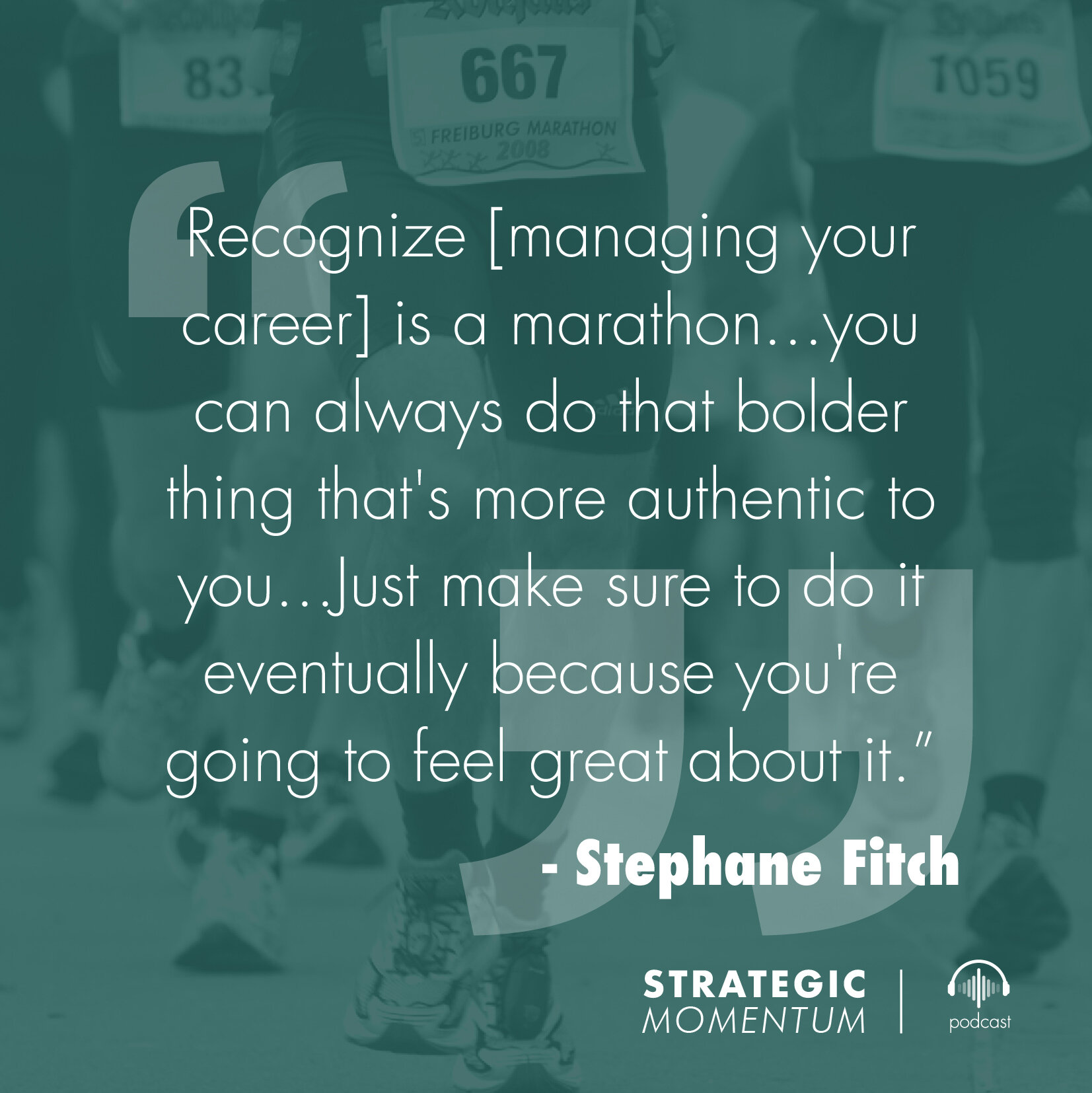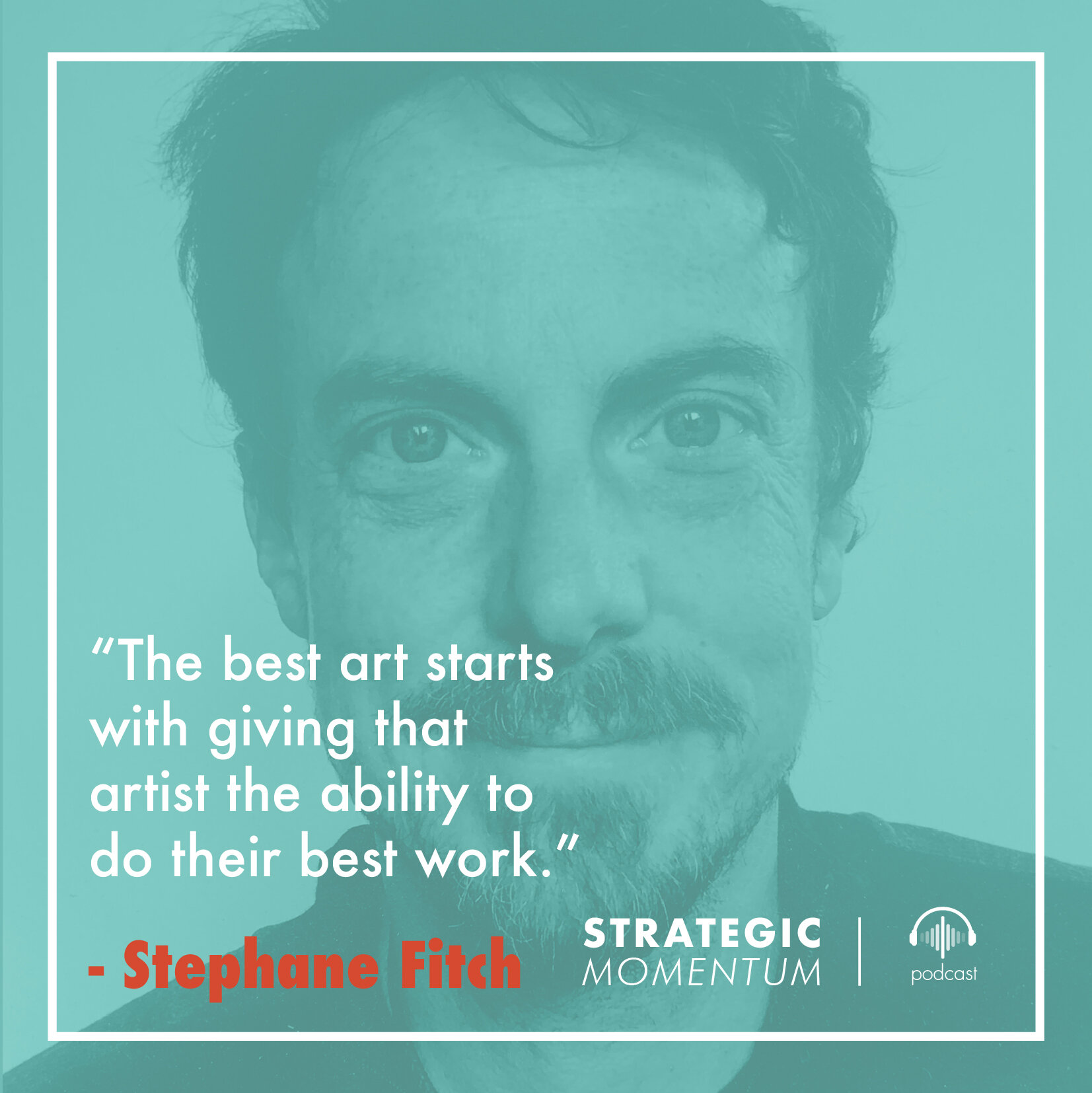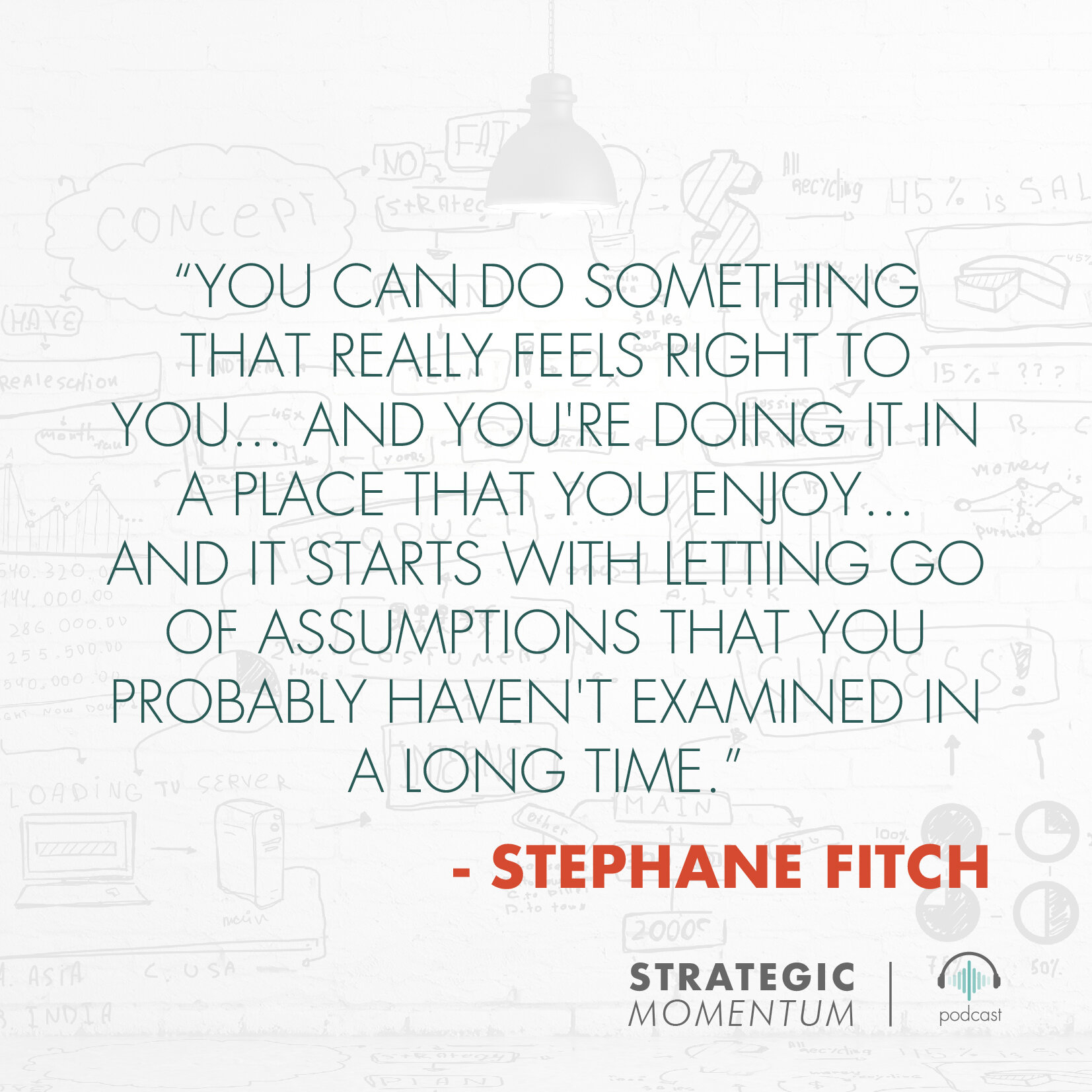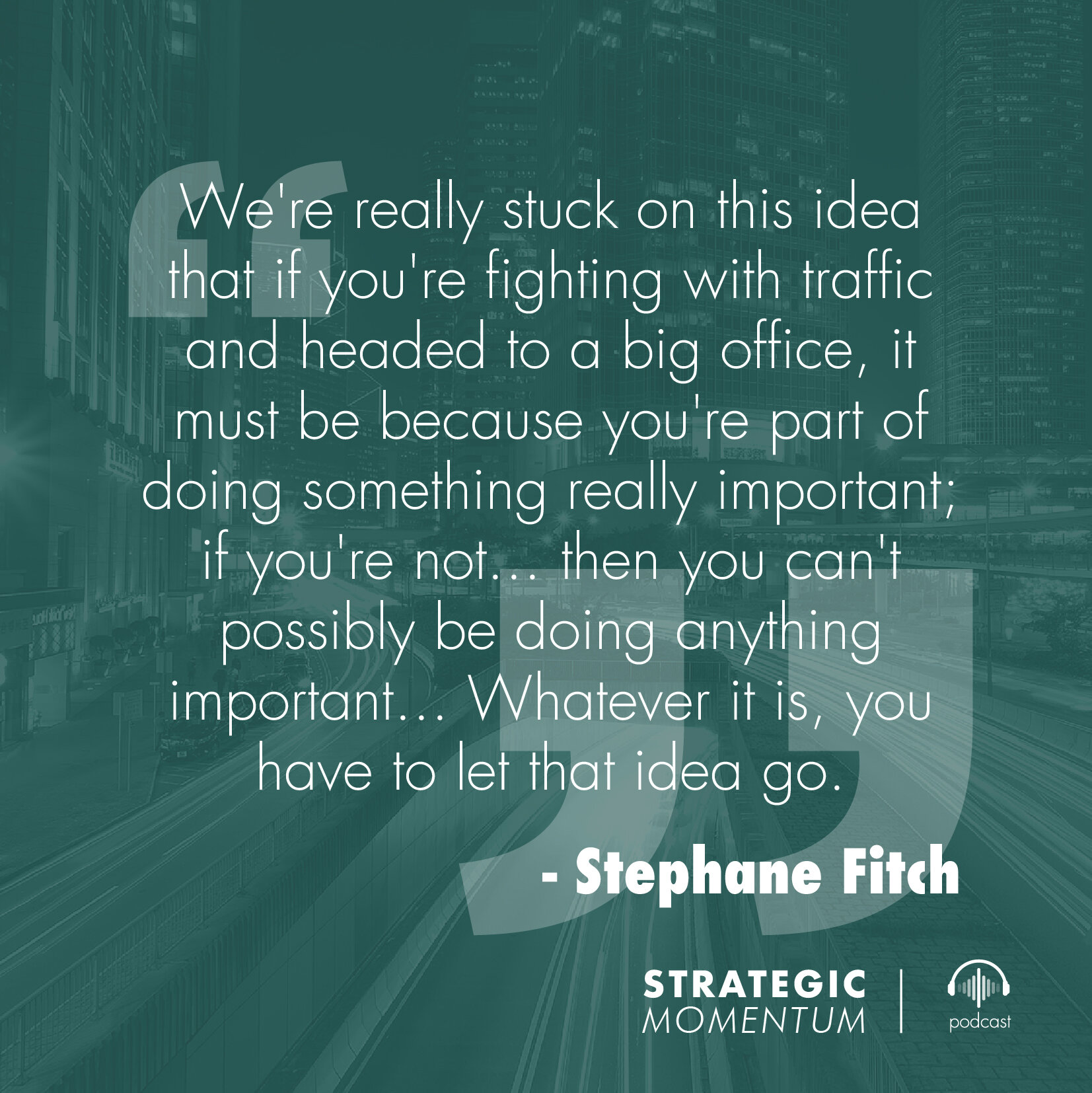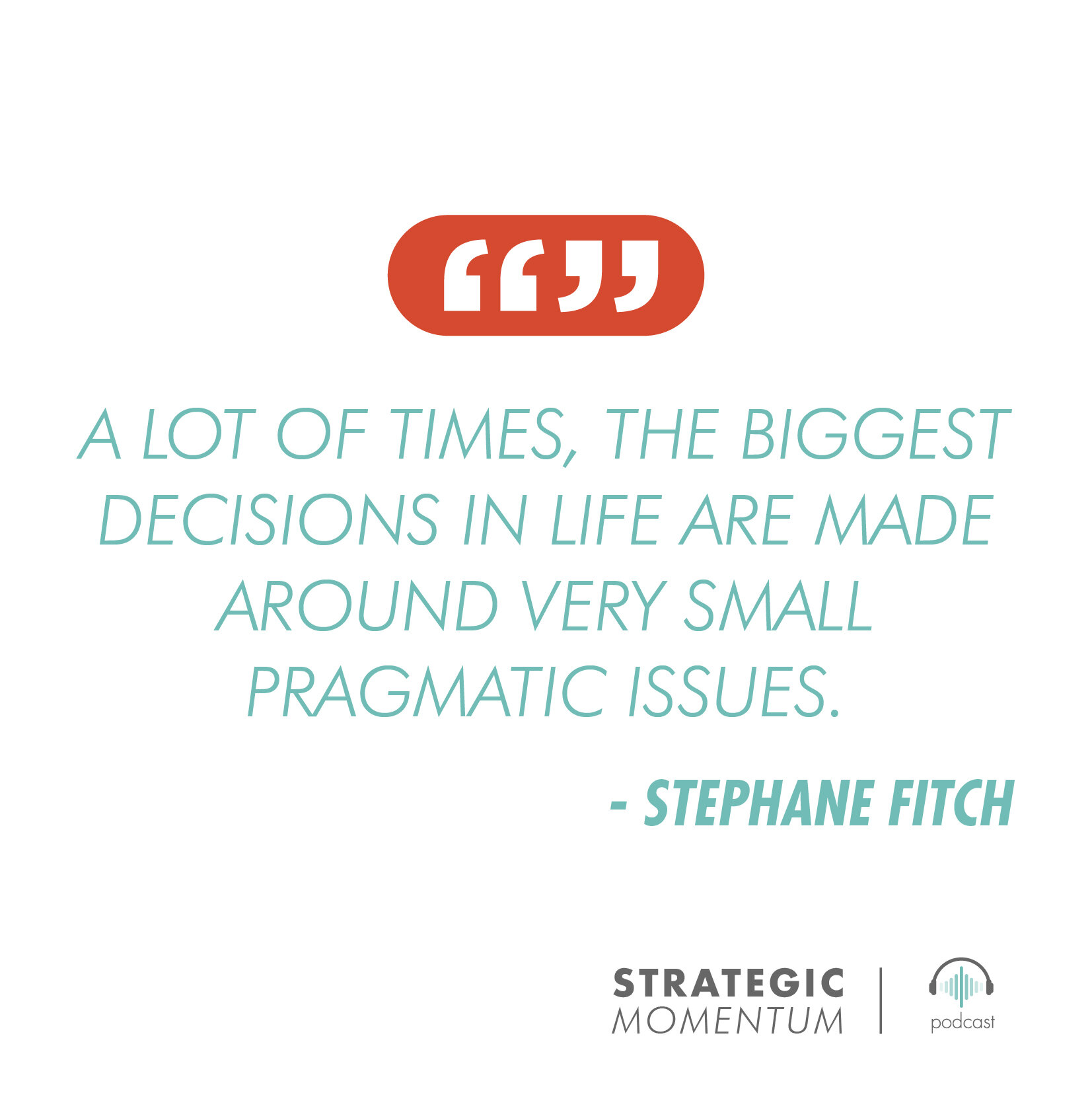Ep. 36 - Personal and Professional Authenticity: The Fuel Powering a Different Kind of Content Development Business - with Stephane Fitch
Find Us Wherever You Listen To Podcasts
In the world of journalism, connecting to your audience is paramount. Yet, making that connection is a common struggle that those in the profession face day-in and day-out.
But to do your best work, and ultimately gain upward mobility, being in the right environment is key. However, there are common misconceptions of what that entails.
Our guest Stephane Fitch, former Forbes Bureau Chief and now founder of the content strategy, planning, and development company FitchInk, didn’t want to trade life in a sub-par environment for a chance at upward mobility. So he forged a different path to find that momentum and reach his own personal and professional potential.
Breaking the New York State of Mind
For 20 odd years, Stephane worked as a journalist writing in “a very traditional environment.” He started at a community newspaper in Portland, Maine, then worked at Newswire in New York City, eventually moving to Forbes Magazine. There he served as Bureau Chief in London and later in Chicago and was a mainstay feature writer.
But when a $50 parking ticket made him question if his job in media was really enough to support his family, he reevaluated his career.
“This career wasn't doing everything it needed to do to support my family... If I wanted to continue moving up, I would need to go to New York City. I needed to really become one of the editors of the magazine, so on and so forth. I started to ask myself, are there better choices?”
At the same time, media was going digital and social which resulted in a changing ecosystem; Facebook had become America’s newspaper.
Career-wise, Stephane wasn’t sure that being a bureau chief or even an editor was going to be enough. He realized that helping others tell their story, as opposed to being an investigative journalist, was more authentic to who he was.
And going back to New York, working out of a skyscraper, and fighting with Midtown rush hour traffic every day wasn’t what he wanted. So he considered the possibility of being able to do his very best work from home or from places he knew would be good for his daughter and wife.
Fundamentally, Stephane was looking for more fulfillment and a better lifestyle for his family, while still actively participating in the changing media landscape.
That sparked the idea of starting a company that would be suited to assist with and benefit from the digital media revolution. So, in 2011, Stephane launched his company FitchInk which now services a range of clients like GE and Google as well as smaller firms. And his company operates with a 100% remote workforce.
The Power of Being Authentic, Small, and Agile
In building his company and a new life outside of a major zip code, Stephane fully realized the power of one’s environment to influence their productivity. It’s about people being in a place where they feel like their authentic selves and can truly connect to their audiences.
“I want my people to find the environment where they can do their best work. And if they love the give and take of the writers' room, we try to create that for them digital. If they don't, we could give them that peace of quiet they need. The main thing is I want them to do their best work for our clients, who really are depending on us to do that hard, sad, dreary process of writing.”
Many of the best journalists already work remotely, and by forgoing a central office, Stephane has been able to tap into those resources and work with some of the best journalists all over the country and world.
Being small and agile also enables Stephane and his team to have a more intimate relationship with their clients and, ultimately, their client’s customer – and this level of intimacy has been a great benefit as it is unfortunately lacking throughout the business world today.
Overcoming Myths and Misconceptions to Find Your True Self
To enter into this “safe place” where one feels the most authentic requires breaking away from the common perception that career success means you’re working at a Fortune 500 company in a major metropolitan city.
It’s about pursuing something you love and weighing out the pros and cons.
So ask yourself a lot of questions. Start with “Who am I. Where would I really like to work? What do I really want to be doing with my time?” Understand if the path that you originally set out on is going to adequately fulfill you.
Most importantly, don’t get caught up in the images and assumptions that you have been living with for most of your life. Let go and take a risk because “for the vast majority of us... Risks usually pays off.”
Key Takeaways:
In today’s world, you don’t need a big office in a city like New York or Chicago to be successful in business. Creating a remote workforce enables you to pull from the best talent all over the world.
Creativity is unleashed when there is a connection to the subject at hand. Writers, journalists, and most other content creators need an environment that fosters that creativity because “the best art... starts with giving that artist the ability to do their best work.”
Create an environment that lets you and your employees be their most authentic selves so they ultimately can connect to their audiences in the most effective way.
Work on understanding and trusting yourself so that you can get clarity on the kind of career you want to have moving forward. Let go of the assumptions that you probably haven’t examined in a long time and realize that it is marathon. You don’t need to do it all today, but make sure to do it eventually.
Ask yourself, what would you do if you knew you couldn’t fail? If it came to choosing a different and more fulfilling career path, what would you do? What choices would you make?
If you cannot let go of that calling card, the need to work at a major company in a big city, if that is just so central to your identity, then an alternative way to work may not be the right choice for you.
Understand that there is a significant benefit to being small, agile, and virtual. Clients find it refreshing to not only work with folks who are hyper-responsive to their needs but also the ability to work with the top people who can directly provide their perspective. Plus this facilitates a more intimate relationship with your client in the end.
Resources:
Learn more at https://fitchink.com/
Twitter: @StephaneFitch
Subscribe to the Strategic Momentum podcast:
On Spotify








